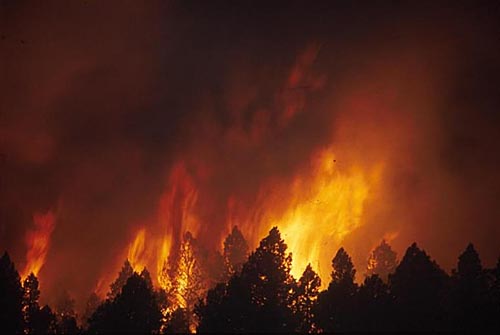
A headline in last month’s Evergreen Magazine asked, “Could FEMA do a better job with our wildfire pandemic?” The article traced the history of the U.S. Forest Service (USFS), the catastrophic wildfires of recent years, and the mismanagement that causes them, asking whether a different federal agency might do a better job.
I was reminded of the TV game show, “Are You Smarter Than a 5th Grader,” because my first reaction was that a class of 5th graders could do a better job of managing forests than the Forest Service, which has been almost completely dysfunctional for a generation. That was my first reaction, but it required a more thoughtful analysis.
That was also the conclusion of one of America’s most knowledgeable forestry and conservation writers, Jim Peterson, Evergreen’s founder and publisher. He asked a group of retired foresters to share their thoughts on two different ideas.
The first was putting the Federal Emergency Management Agency (FEMA) in charge of these disastrous forest fires. After all, FEMA responds to other natural disasters, from hurricanes to floods, generally quite well. The second was transferring that authority to the Department of Homeland Security, because wildfires threaten the nation’s power grid and other vital infrastructure.
The professional foresters Peterson consulted were not enamored with either idea, although they all lament the loss of forestry expertise in the USFS. Indeed, the problem with retired professional foresters is that they are retired. Nearly all of the generations of trained foresters who once ran that agency are gone.
USFS should be run by professional foresters at the local/regional level, not by interest groups in Washington, and especially not by judges. Whenever we substitute the judgment of federal courts or interest groups for scientific management, the forests suffer. That should be clear to observers on all sides. They need only look at 140 million acres of forests destroyed by fire over the last 20 years.
Promotion of trained foresters was a long-standing tradition in the agency for decades, but today its employees are much more varied in their training and education: biologists, engineers, teachers, statisticians, hydrologists, and others. Every USFS Chief has held forestry degrees, except Max Peterson (a Carter-appointed engineer) and Mike Dombeck (a Clinton-appointed biologist). It is an almost-universal concern among long-time professionals in the agency that new hires and promotions continue to go to people not trained in forestry. An agency whose mission is so specific should give specific weight in the personnel process to applicants with forestry degrees from credible forestry programs. Elected officials should set policy parameters, but foresters should implement them on the ground. And Congress should limit the ability of federal courts to make forest management decisions, for which federal judges are not trained. Court orders dictate a large share of the agency’s budget, set harvest amounts, and routinely block agency actions.
Dead and dying forests are the price. Peterson and his retired foresters criticize the Forest Service’s response to overgrowth, which is to ignore it, in order to “return fire to fire-depleted ecosystems.” It is disingenuous, at best, because as Peterson points out, the Forest Service could have used fire to thin overgrown forests 30 years ago when the problem became obvious. “The agency could have safely run fire through the thinned stands at five to ten year intervals, holding the risk of larger and more destructive wildfires in check.” It’s too late now, because the forests are so overgrown that fires now kill all the old trees, too, along with wildlife, communities, and lives.
Upon reflection, this does not argue for taking management away from the Forest Service and giving it to a different agency (none of whom are staffed with trained foresters, either). It argues for fixing the Forest Service’s staffing and expertise problem, and for returning decision making to foresters at the local and regional level, whether national interest groups and their favorite judges like it or not. It cannot be done overnight, because the agency has lost that expertise. The forest products industry, which once employed thousands of foresters, is mostly gone, too.
As USFS founder Gifford Pinchot wrote in 1910, “A nation deprived of liberty may win it; a nation divided may reunite; but a nation whose national resources are destroyed must inevitably pay the penalty of poverty, degradation, and decay.” In a 1963 speech praising Pinchot, President Kennedy misread his notes about conservation, and said “conversation is the key to the future.” In fact, he was right – we need a conversation about conservation.




Comments on this entry are closed.